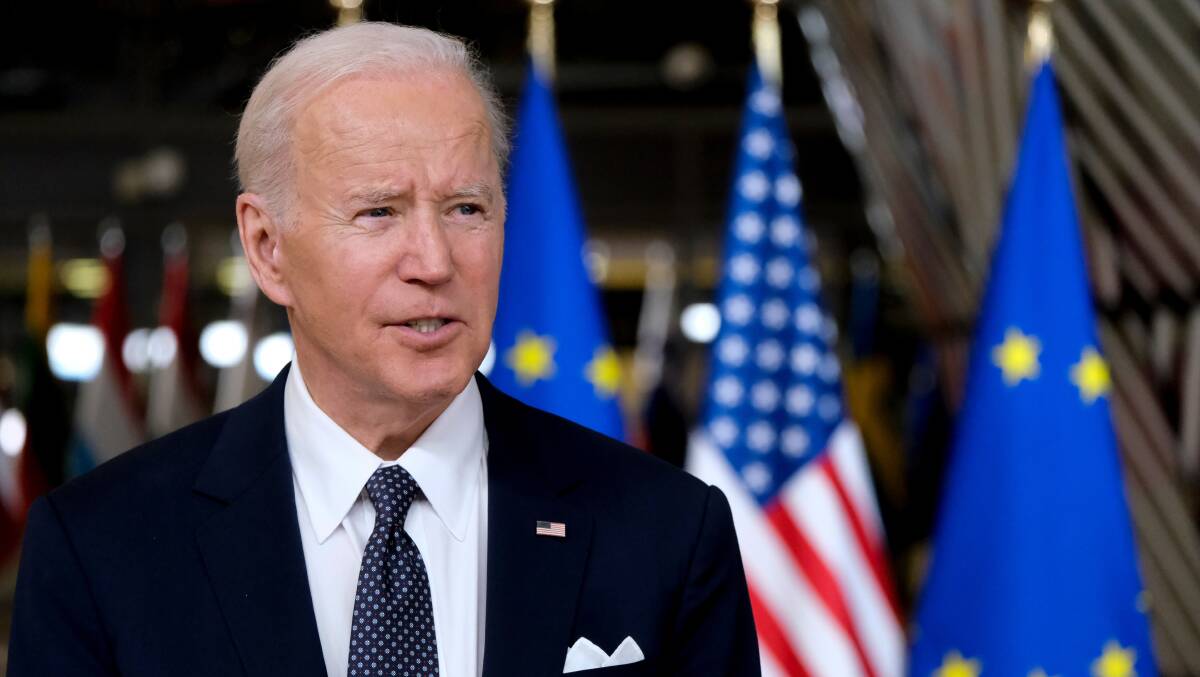In the past week, nothing has been more alarming than a leaked memo from a US general who said he expected his country to be at war with China in 2025.
Subscribe now for unlimited access.
$0/
(min cost $0)
or signup to continue reading
The opinion of General Mike Minihan was even more pessimistic than what the then head of the US military's Indo-Pacific Command, Admiral Phil Davidson, said in 2021 - that the risk of war by 2027 was "manifest".
It would be a war over Taiwan.
Is the risk actually high? How did we get into this situation? And will it worsen?
No one, except maybe Chinese President Xi Jinping, really has a good estimate of the risk. Minihan, who runs the US Air Force's tanker and transporter fleet, didn't pretend to have calculated it with any precision. "I hope I am wrong," he told his subordinates. "My gut tells me we will fight in 2025."
Most pointy-headed strategic analysts who spend their lives studying these things avoid offering precise estimates. But I am sure almost every one of them would say the chance of the US and China getting into a war this decade was higher than 10 per cent, possibly much higher. And that's just dreadful.
For what it's worth, the new chairman of the Foreign Affairs Committee in the US House of Representatives, Michael McCaul, responded to Minihan's comments by saying: "I hope he is wrong .... I think he is right, though."
This is also Australia's problem, because we would be very likely to participate. We'd be scared that the US could be defeated, and even more scared of losing its support if it were defeated and we had not helped it.
Fundamentally, the risk of war has risen because China has got to a position where it may calculate that it would win.
The higher China's confidence, the greater the probability that it will use force to try to seize Taiwan, make a move that risks a war, or, in the event of some accidental military clash with Taiwan, the US or Japan, decide to escalate.
The military strength behind that confidence comes not just from economic growth and the power of the armed forces China can now afford. Geography is also helping it: Taiwan is just off its coast, whereas the US would have to project power over long distances to protect the island.
Also, China has efficiently spent its money on specific military capabilities to thwart US power projection. Worst of all, the democracies, notably the US, have been far too slow in reacting.
To defend Taiwan, the US must rely particularly on Western Pacific airbases and on surface warships and submarines. So China has built up forces to attack the bases and surface ships. (Submarines are much more difficult customers to deal with.)
China would try to wreck the bases and destroy their aircraft by firing missiles at them, and it would try to knock out the ships with missiles and torpedoes. Some of those missiles could be launched from Chinese territory. Others would be carried to nearer the targets by bombers.
Chinese submarines, too, can launch such missiles, and they would try to get close enough to attack with torpedoes. They would even try to get at reinforcements emerging from US ports on the far side of the Pacific.
Backing up all this are systems, especially satellites, for finding ships and other targets.

All this stuff is much cheaper than the ships, bases and aircraft it would destroy, so China has bought it in quantity.
There are strategies that the US can use in reply, though they're not nearly as efficient as China's. Important moves for the US and others are preparing to spread aircraft over more bases, toughening and defending the bases, and buying larger stocks of strike missiles with longer range.
The great mistake was that the US hardly got moving in implementing those strategies until a few years ago, and even now it's not moving fast enough.
Japan and even Taiwan have also been far too slow to react.
Australia, too, of course.
The writing was on the wall by 2009, when Chinese weapon development was clearly threatening US warships, especially aircraft carriers. In 2011, President Barack Obama finally announced a military pivot to Asia, but it turned out to be more hat than cattle. The US was distracted in Afghanistan.
Things started to change seriously under Donald Trump, and now Joe Biden's administration is pushing even harder.
But we're now in the awkward position that strengthening deterrence of China could actually increase the chance of war in the short term.
There's evidence that in both 1914 and 1939, Germany chose to risk general war in Europe because it calculated that its chance of winning had peaked: its rivals were gaining strength.
READ MORE:
Now China, watching the belated US, Japanese and Taiwanese response, could at some point decide that its chances will never be better.
Even if we get through this dangerous period, China may be faced with a similar calculation in the 2030s or 2040s if population shrinkage leads it to conclude that its relative economic strength is peaking.
Still, we can reasonably hope that the Chinese Communist Party and particularly its leadership will fear risking their positions by throwing uncertain dice.
They wouldn't bet on a 70 per cent chance of winning, and probably not on 90 per cent.
But what one day if they think the odds have reached 95 per cent and only go downhill from there?
That's where Vladimir Putin has helped.
As this column pointed out soon after he invaded Ukraine, he's demonstrated to Xi that leaders can be wildly wrong when estimating their military strength.
- Bradley Perrett was based in Beijing as a journalist from 2004 to 2020.


